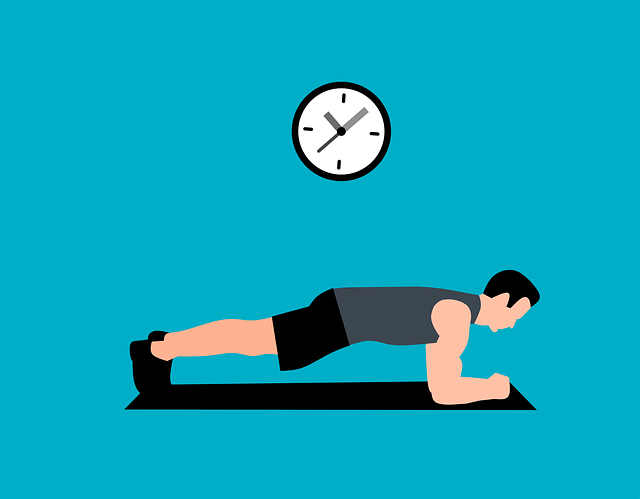Chronic inflammation, a significant health risk factor linked to various conditions, can be tackled through holistic inflammation management. Integrative therapies combine conventional medicine with complementary practices like stress reduction, mindfulness, yoga, acupuncture, and herbal remedies. Lifestyle modifications, focusing on dietary changes, exercise, and stress management, are key to reducing systemic inflammation. Mind-body practices prove effective in lowering chronic inflammation by promoting relaxation and regulating the immune system, ultimately enhancing well-being.
Chronic inflammation, often silent yet powerful, can lead to a myriad of health issues. This article explores integrative therapies for long-term inflammation management, offering a holistic approach to combat this stealthy enemy. We delve into the causes and impacts of chronic inflammation, uncover alternative treatments, and highlight lifestyle modifications. Additionally, we explore the profound effects of mind-body practices in reducing systemic inflammation, providing readers with practical tools for achieving lasting wellness.
- Understanding Chronic Inflammation: Causes and Impact
- Exploring Integrative Therapies for Holistic Relief
- Lifestyle Modifications for Long-Term Management
- The Role of Mind-Body Practices in Reducing Inflammation
Understanding Chronic Inflammation: Causes and Impact

Chronic inflammation, a prolonged inflammatory response in the body, goes beyond acute inflammation’s immediate reaction to injury or infection. It is often a low-grade, persistent state that can last for months or even years. This continuous inflammation can have far-reaching consequences, affecting various systems and organs. Potential causes are diverse, ranging from autoimmune disorders like rheumatoid arthritis to environmental triggers such as air pollution, certain foods, or even emotional stress.
The impact of chronic inflammation is significant. It contributes to the development and progression of numerous conditions, including cardiovascular diseases, diabetes, cancer, and neurodegenerative disorders. Holistic inflammation management becomes crucial in addressing these underlying causes and promoting overall well-being. By adopting a comprehensive approach that incorporates dietary changes, stress reduction techniques, exercise, and complementary therapies like acupuncture or herbal medicine, individuals can effectively support their bodies in managing and reducing long-term inflammation.
Exploring Integrative Therapies for Holistic Relief

In the quest for long-term inflammation management, many individuals are turning to integrative therapies, embracing a holistic approach to relief. This shift reflects a growing recognition that chronic inflammation is not merely a local issue but a complex, systemic process impacting various aspects of health and wellbeing. Integrative medicine offers a multifaceted strategy, combining conventional medical knowledge with evidence-based complementary practices to address the root causes and consequences of inflammation.
By adopting a holistic perspective, these therapies aim to nurture the mind, body, and spirit as interconnected entities. Techniques such as stress management, mindfulness meditation, yoga, acupuncture, dietary interventions, and herbal remedies are being explored for their potential to modulate the immune response and reduce systemic inflammation. This comprehensive approach goes beyond symptom relief, aiming to restore balance and promote long-lasting health by targeting the underlying factors contributing to chronic inflammation.
Lifestyle Modifications for Long-Term Management

Lifestyle modifications play a pivotal role in holistic inflammation management, offering long-term benefits for individuals dealing with chronic inflammatory conditions. Adopting an anti-inflammatory lifestyle involves a multi-faceted approach. Dietary changes are a cornerstone, focusing on whole foods rich in antioxidants and omega-3 fatty acids, while minimizing processed sugars and saturated fats known to contribute to systemic inflammation.
Regular physical activity is another powerful tool. Moderate exercise, such as walking, swimming, or yoga, helps reduce inflammatory markers and promotes the production of anti-inflammatory hormones. Additionally, stress management techniques like mindfulness meditation, deep breathing exercises, and sufficient sleep are essential. These practices cultivate a sense of calm, reducing the body’s stress response and mitigating the impact of inflammation.
The Role of Mind-Body Practices in Reducing Inflammation

Mind-body practices have gained significant attention in the field of holistic inflammation management. These practices, including mindfulness meditation, yoga, and deep breathing exercises, focus on the intricate connection between the mind, body, and breath. By cultivating a state of relaxation and reducing stress, these techniques can significantly lower levels of chronic inflammation in the body. Research suggests that mindful meditation and yoga can modulate the immune system, leading to reduced production of pro-inflammatory cytokines, key players in the inflammatory response.
The holistic approach to inflammation management recognizes that mental and emotional well-being are intrinsically linked to physical health. By addressing the mind-body connection, these practices offer a natural and effective way to combat long-term inflammation. They provide individuals with tools to navigate stress, improve overall health, and enhance their quality of life, all essential aspects of comprehensive holistic inflammation management strategies.
Chronic inflammation can significantly impact overall health and well-being, but with integrative therapies, it’s possible to achieve long-term management. By combining lifestyle modifications, mind-body practices, and holistic approaches discussed in this article, individuals can navigate the path towards reducing inflammation and promoting a healthier, more balanced life. Embracing these strategies empowers folks to take control of their health and embrace a vibrant, reduced inflammation lifestyle.
